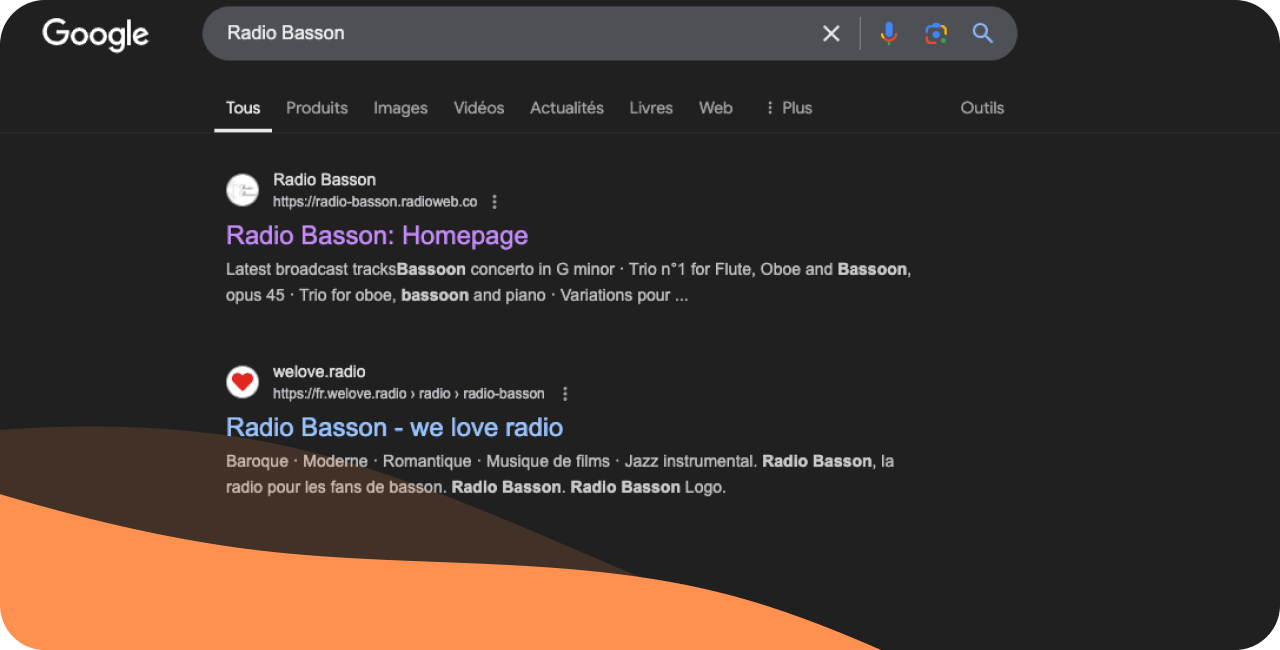

In today’s digital world, having an online radio station is a fantastic way to reach listeners far beyond the limits of traditional broadcasting. But there’s a catch: with thousands of internet radio stations out there, how do you ensure people actually find yours? The answer lies in SEO (Search Engine Optimization). While SEO might sound like something only website owners should care about, it’s just as critical for internet radio stations. Let’s dive into what radio SEO means, why it’s important, and how you can use it to grow your audience.
1/ What is Radio SEO?
2/ Why SEO matters for Internet Radio Stations
3/ Key elements of Radio SEO
4/ Overcoming common Radio SEO challenges
5/ Is Radio SEO worth the effort?
Let’s start by breaking down SEO. Search Engine Optimization, is the practice of enhancing your online presence to rank higher on search engines like Google. When people search for something online, Google (or other search engines) lists the most relevant results. SEO is all about making your online content relevant enough to show up at the top of those results.
So, Radio SEO is simply using these same strategies to make sure people can find your online radio station when they search. It’s about optimizing your station’s website, streaming content, and any other online material so that it ranks highly on search engines. This way, when potential listeners are looking for the type of content you offer, they’re more likely to stumble upon your station instead of a competitor’s.


Imagine spending hours curating playlists, setting up interviews, and building a brand, only for no one to hear it. Good SEO prevents that by boosting your visibility and bringing more listeners to your station. Here’s why Radio SEO matters:
Most people use search engines as their first step when looking for new music, news, or entertainment. Think of it like a library catalog: if your station isn’t indexed properly, it’s almost invisible to new listeners. A well-optimized radio station increases the likelihood of showing up in relevant search results, bringing potential listeners right to your digital doorstep.
Radio SEO enhances your discoverability in two main ways:
Visibility is the first step toward building a fan base, and it’s especially important in the competitive landscape of online radio. Without SEO, you could be missing out on a huge number of potential listeners.
Unlike traditional FM radio, which is limited to a particular area or frequency range, online radio has virtually no boundaries. With a good SEO strategy, you’re not only reaching local listeners but have the potential to connect with a global audience. For instance, a jazz station based in New York can just as easily reach jazz enthusiasts in Tokyo or Paris.
SEO opens up your reach by:
SEO takes your station from being a local hub to a global community by helping people discover your station from all over the world.
SEO isn’t just about attracting new listeners, it’s about creating a sense of trust and reliability. When people see your station regularly appear in their search results, they’re more likely to remember it, trust its credibility, and return to it.
Consider it from a listener’s perspective: when you see a station that appears consistently in top search results, it seems established and trustworthy. With a strong SEO strategy, you’re more than just a one-time stop for a listener. You become a go-to resource for music, news, or whatever unique content you offer. SEO also helps keep you top-of-mind when your listeners search for something similar in the future.
The number of online radio stations has exploded in recent years, making it harder to stand out. Without SEO, you’re one of many stations that listeners might pass by, especially when browsing results from generic search terms. But with a well-developed SEO strategy, you’re positioning your station to rank higher than the competition.
Radio SEO helps you differentiate by:
Now, let’s explore some key aspects of SEO that you can leverage for your online radio station. It might sound technical, but with a bit of time, you’ll get the hang of it!
Keywords are the words or phrases that people type into search engines when looking for something. For instance, if you run a jazz radio station, keywords like “online jazz radio,” “listen to jazz radio,” or “best jazz internet station” could be what you want to rank for.
How do you find the right keywords? Here are some steps:
Once you have your keywords, sprinkle them naturally throughout your website, titles, meta descriptions, and any blog content you post. This helps search engines understand what your station is about and match it to people searching for similar topics.
When people search for radio stations, Google wants to provide the best options. It rewards websites that are well-organized, fast, and easy to navigate.
Here are some essential elements of website optimization for SEO:
SEO isn’t just about keywords and metadata; it’s also about content. Creating quality, engaging content is essential for keeping visitors on your site and boosting your SEO ranking. Here are some ideas for content:
Content should be created with two goals in mind: engaging your audience and improving your SEO. Google favors sites that are regularly updated with high-quality content, so try to post new material consistently.
Backlinks are links from other websites that direct people to your site. Google sees backlinks as a sign of credibility, so the more quality backlinks you have, the better your chances of ranking highly in search results. Here are some strategies for building backlinks:
If your internet radio station is tied to a specific location, such as a community station, local SEO can help target listeners in your area. This includes things like adding your city’s name to your website’s metadata, using location-based keywords, and creating a Google My Business profile.
SEO takes time, so you’ll need to be patient. However, it’s important to track your progress to see what’s working and what isn’t. Here are some tools to help:
While SEO is a powerful tool, it can have its challenges, especially for online radio stations. Here are some common ones and tips for overcoming them:
With the right approach, SEO can be a game-changer for your internet radio station. It increases your station’s visibility, brings in more listeners, and helps you stand out in a crowded digital world. Whether you’re a small indie station or a large-scale operation, SEO is essential for growing your audience and building a successful online radio station.
Remember, SEO is a long game. The benefits won’t appear overnight, but by consistently applying these strategies, you’ll see steady improvement in your rankings, listener base, and overall station success. So, start optimizing today and watch your internet radio station’s audience grow!
Live radio broadcasting requires a stable and high-quality software encoder to ensure seamless audio streaming…
With the rise of digital communication, educational institutions are increasingly exploring new ways to engage…
Taking live calls on your radio show is a great way to connect with your…
If you're running a radio station (or thinking of starting one), you've probably heard that…
Radio is everywhere. It’s in our cars, our homes, and now, thanks to the internet,…
Recording outdoors can be a rewarding yet challenging endeavor for radio hosts and podcasters. The…